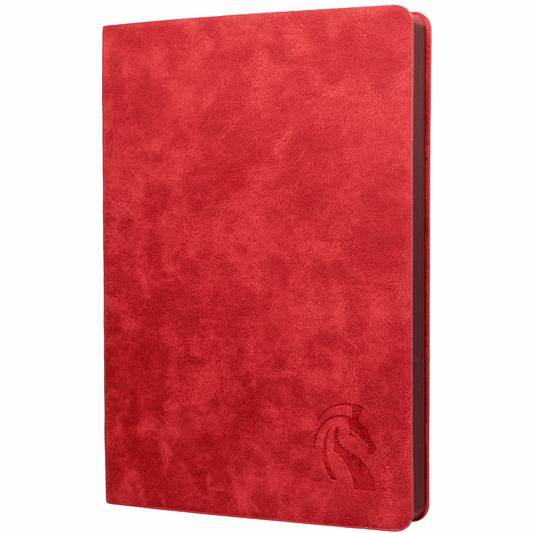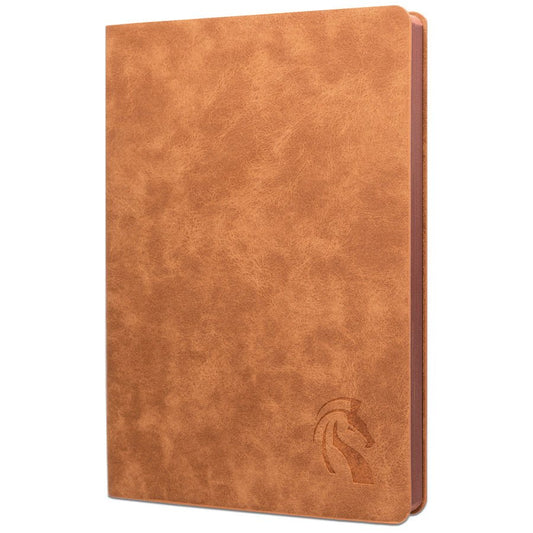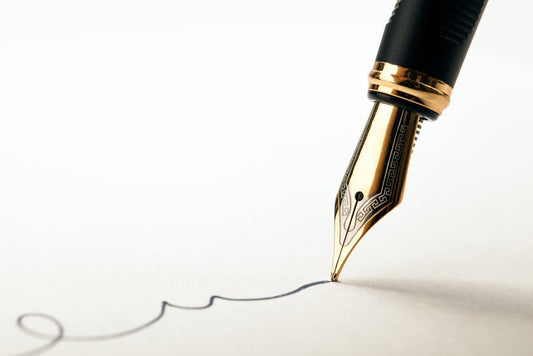
Keeping a journal is a fantastic way to increase one's awareness, monitor significant life events, and begin a wide variety of beneficial new habits. If you've never kept a journal before, deciding whether to write by hand or type it on a computer can be challenging. There are benefits and drawbacks to both approaches, and journaling can serve a variety of purposes regardless of which you choose.
Keeping a journal by hand or on a computer is a matter of personal preference. The deliberate and contemplative nature of handwritten notebooks appeals to many. Although some people prefer handwritten journals, others prefer typed ones for their convenience and speed. People just starting out should think about why they want to keep a journal.
Choosing a journaling method is a question of personal opinion, so I'll discuss the pros and cons of a few popular approaches to help you decide.
IS COMPUTER-BASED JOURNALISM SOMETHING YOU CAN DO?
Keeping a journal digitally on a computer or other device is perfectly acceptable. In fact, these techniques are sworn by by some journal keepers as the only way to maintain order and efficiency in their writing.
To some, it may seem unnatural to opt for an electronic journal rather than an old-fashioned paper one because of how recently the former has come into vogue.
Use of technology to keep a journal, however, has several advantages. The following are examples of some of these:
Facilitating Quick Multimedia Organization
Profound easiness of access
None of these are things that can't be accomplished with a written notebook; but, a digital journal makes them much simpler to focus on and allow.
The Computer Journaling Primer
Starting a journal on a computer may feel unnatural at first. Don't stress! After some trial and error, you'll figure out what works best for you and start reaping the rewards of journaling.
There is no predetermined order of events that must occur before you may begin journaling.
think about why you want to keep a journal. Learn how to keep a digital journal with this helpful guide. You should try to make yourself as as ease as possible throughout the process.
Some preliminary preparation is required to make computer-based journaling convenient and easy. This includes:
Pick a system to use for organizing your work.
Think about why you want to keep a journal.
Make a timetable
Choosing a medium is the first and most crucial step in keeping a journal. There is a plethora of possibilities when it comes to digital resources, and your final decision may hinge on a few different aspects. Choices that are typically available include:
Google Docs or OneNote by Microsoft
Evernote
Secret online journal
Simply put, you can use Notepad or any other simple text editor.
These are all employed for the sole purpose of putting pen to paper. OneNote and Evernote are good options if you'd like to keep a journal that you can access from your computer, phone, tablet, and other devices thanks to their online apps and syncing capabilities. Using a plain text editor or an offline app like Word is your best bet if secrecy is a priority.
It is important to keep your records and notes in order when you decide on a strategy. You will be able to see your growth as a writer by looking back at your journal entries over time. OneNote and other apps include in-built tracking mechanisms that can make this process much simpler.
After settling on a medium, decide what you hope to achieve with your journaling. This guideline applies whether you keep a digital or analog journal and is subject to alteration. As you learn more about your motivations for journaling, simple tools will become available to help you set up effective processes.
To improve the usability of a digital journal, it is sufficient to integrate it with a health app, as an example.
One of the most useful features of keeping a digital journal is the ability to integrate it with other tracking apps and systems.
Now that we have established some preliminary objectives, we can begin to formulate a plan of action. Particularly in the outset of a journal, it is simple to forget to add an entry and hence lose all momentum. Whether you choose to write in your diary first thing in the morning or right before bed, sticking to a regular routine is essential for reaping the benefits of journaling.
THE PROS OF USING A COMPUTER FOR A JOURNAL
Journaling is just one more area where technology has made life simpler. Digital writers have access to a wealth of resources and tools thanks to the abundance of journaling apps available online. Digital journals provide many advantages beyond the mere convenience of typing, including enhanced organization, speed, multimedia features, and accessibility.
ORGANIZATION
It would be difficult to emphasize the benefits of digital journal organization compared to traditional handwriting methods. Journal entries can be renamed, sorted by date, altered later, color-coded, and more with many different apps and devices. Computer-based journaling is probably your best bet if you want to keep a journal that is easy to track and go back to.
Digital journals offer the advantage of being easily searchable and organized through features like the ability to link to related articles and references. You may preserve a consistent aesthetic across your diary by linking documents to other entries that discussed the same topic. This is useful for organizing your thoughts and exercises into distinct categories.
Many online journals also allow you to search for articles by topic, title, date, or most recent revision. Because of its robustness, a simple organizing technique is possible, which can be simply modified per user's needs.
SPEED
Typing up a journal entry is much more efficient than writing one by hand for nearly everyone. The gap in typing speeds is anticipated to widen as time goes on and technology advances, especially as more and more young children are exposed to typing at younger and younger ages. Digital journals are the best option if you're looking for speedy journal entries or updates.
Since typing is so fast, it's easy to get into the habit of sloppy, careless writing. To avoid this pitfall, keep in mind why you want to keep a diary in the first place, whether it's to hone your writing skills, gain insight into your experiences, or simply unwind.
The speed of digital journals is a clear advantage for people who are interested in writing brief, daily updates, recording statistics about their lives, or writing brief notes to remember later.
Also, compared to handwritten diaries, the time required to set up new pages or new types of journal entries is nearly halved. For instance, creating some kind of spreadsheet by hand can be a tedious process. In contrast, keeping a digital journal is as easy as creating a new Word file.

MULTIMEDIA SKILLS
Electronic diaries, with their capacity to record audio and video, are a fantastic way to keep tabs on just about anything that happens in one's life. If you write in your journal about spending a pleasant day with the family, you can now include a photo from that day with a few clicks. In the event that a particularly interesting new music is discovered on a given day, a direct link to it can be added so that it can be listened to again on future visits.
There is a positive correlation between the amount of media used to convey a tale in a journal entry and the likelihood that you would return to read that entry in the future. Moreover, this is a fantastic method for ensuring that each entry in your diary is fresh and original.
To simplify its use, a digital diary can be transformed into a scrapbook by incorporating several media types. Do not let the vast possibilities of this gift to creative types who wish to push journaling further than ever before overwhelm you. Don't feel like you have to include some sort of bonus material to every entry in your digital notebook just because you can. If you don't, journaling can stop being enjoyable.
ACCESSIBILITY
When keeping an electronic journal, convenience can take various forms. You may keep track of your thoughts and feelings at all times by keeping a journal that is accessible from any device, be it a phone, computer, or tablet. In addition, unlike while keeping a handwritten notebook, your digital journal may be backed up in case of an emergency.
If you have trouble writing by hand or have a disability that prevents you from keeping a physical diary, keeping a digital one is a terrific alternative. Increases in mobile and online accessibility have made it possible for more people to keep diaries whenever they like. Text-to-speech software is a fantastic technological advancement that makes journaling accessible to more people than ever before, yet it's only available online.
KEEPING A HAND-WRITEN JOURNAL
Many serious writers insist on writing down their thoughts by hand in a diary, listing the many benefits of this time-honored practice. The benefits of keeping a journal, and the extent to which each individual experiences them, will vary from person to person. The following are examples of some of these:
Ignoring Electronics
Customizability
Focus and Longing for Solitude in Private Space
Many of the advantages of keeping a handwritten journal are more abstract and difficult to pin down in concrete terms than others, such as privacy.
As simple as it may sound, the act of putting pen to paper is a big part of why people enjoy keeping handwritten notebooks.
Writing in a handwritten notebook has many benefits, including reducing distractions and helping the writer focus on what they have to say. If you're keeping a diary to cultivate mindfulness or gain insight into your emotions and routines, this is very crucial.
More explanation is needed to convey a greater understanding of what these benefits represent in practice.
TURNING AWAY FROM CELL PHONES
In a day when people are spending more time than ever in front of devices, it can be refreshing to have at least a little bit of downtime scheduled into their day.
Some people find that keeping a handwritten notebook is a great way to unplug from technology and focus on the here-and-now.
Taking a break from screens might also influence how you write and the importance you give to words. Many people who use computers for writing have the habit of doing so in order to communicate with others, be it via email or formal paperwork. Quite the opposite of journals, which are meant primarily for the author. This kind of writing can feel more natural and focused if done away from the screen.
Depending on when you usually write in your journal, removing screen time from the equation can have additional positive effects. It's preferable to wait a little while after waking up or before going to sleep if you regularly journal at those times. Starting and ending each day without touching a screen might be facilitated by journaling.
CUSTOMIZABILITY
Writing in a handwritten notebook may take longer than typing on a computer, but it has many advantages over computerized diaries. One of the benefits of writing by hand is the flexibility it affords in terms of layout: you may include images, draw wherever you like, write in any direction you choose, etc.
This flexibility can make each journal entry feel special and help you record your thoughts and experiences in the way that feels right to you.
If you don't think you're getting enough chances to be creative in your day-to-day life, this is a wonderful way to change that.
However, extensive personalization of diaries and logs typically necessitates additional time investment. Although it is true that writing is often slower than typing, the time it takes to physically set up things like Excel spreadsheets or drawings is far longer than it would be to do so digitally. While personalization is a major selling point for many consumers, those more concerned with speed may want to go elsewhere.
PRIVACY
The security of personal information is a major issue for those considering switching to digital journals. Because of the personal nature of journal writing, most authors want to keep their writings hidden from readers. While a digital notepad might technically do this, many find the analog version to be more convenient.
Your journal will be completely private in a notebook because no one will be able to read it unless they happen to stumble across it. This is unlikely to occur unless you share the notebook with someone else or lose it. The risks of working digitally include having your work stolen, having your cloud storage hacked, or having your machine stolen.
FOCUS AND REMINISCENCE

This is the most nebulous grouping to pin down, yet it's crucial to many people's handwritten journals. Writing in a journal by hand has numerous positive effects on people, many of which have already been mentioned.
In order to get the most out of keeping a physical diary, it's important to turn off electronic devices, slow down enough to write legibly, and rest assured that no one else will ever see the contents. One of the main draws of keeping a handwritten notebook is the sense of personal connection it provides.
Those feelings of longing for the past are typically accompanied by this link. People who grew up using pen and paper often feel a desire to update their skills with today's technology. Keeping a journal is a wonderful way to achieve this since it fosters imagination and provides opportunities for direct involvement.
It's worth a try to see how much of an impact handwriting has on your journal entries, as the influence varies greatly from person to person. Many notebook writers claim that taking the time to write out their thoughts in a diary makes the entries more relevant and insightful.
It's possible that the more cursive style of writing prevalent in today's society is to blame for this. Only in private journals will you find most professionals keeping a handwritten record of their daily activities. This naturally alters the way people view their journal and, for many, elevates the significance of the process.
HOW TO DECIDE WHEN TO WRITE IN A HAND-ONLY DIARY
The disadvantages of keeping a handwritten journal include a decrease in convenience, efficiency, and organization. Keeping a handwritten notebook may be preferable if neither of these features is essential to you while you're writing in it.
Think about why you want to keep a journal before deciding whether to write one by hand or on a computer.
Different types of journals are more conducive to different reasons for journaling.
The following questions may help you decide whether or not to write your journal by hand:
How often do you find yourself staring at a screen?
How critical is it that you make entries in your journal quickly?
What time of day do you usually write in your journal?
Is it your intention to be as imaginative as possible in your diary writing?
Even if you aren't sure of the answers, giving them will help you narrow down your options and choose the best course of action.
You should try writing your journal by hand if you have the opportunity to do so and the necessary room to do so.
How much time a person has available each day to write in their journal is usually the deciding factor between the two approaches. Writing by hand in a journal can help you slow down and reflect, which is a good thing.
Modify your strategy accordingly if you discover you have less time or if it just doesn't feel right. It's not necessary to stick with just one journaling format for very long. An intrinsic goal of the activity is to improve one's mood.
Wishing you success and a lot of fun with your journaling endeavors!

LeStallion PU Leather Journals
LeStallion Soft Cover PU Leather Journals inspires and excites you to write more, allow you to further grow and develop, so you may achieve your goals and dreams!
SHOP LESTALLION













